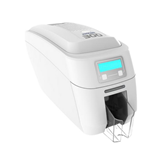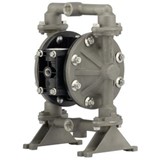The NSW Open for Business Report Card has found that whilst the economic performance of the Iemma Government is better than the Carr Government, it is still “haphazard”.
“NSW has been buffeted by drought, falling property market, interest rate increases, fuel price increases and a rising currency and is the slowest growing State in Australia”, said Kevin MacDonald, CEO of ABL State Chamber.
“Over the past year NSW has experienced two quarters of negative growth, one quarter of positive growth and one quarter of zero growth. For all intents and purposes, the NSW economy is flatlining.
“Whilst business does not subscribe to the view that the flatlining NSW economy is entirely the fault of the NSW Government, we do believe that in such circumstances the Government should be more assertive in creating a climate conducive to business growth and expansion.
“It should not be a surprise that the State with the highest rate of payroll tax has one of the slowest growing employment markets in Australia.
“We’ve seen significant progress in areas such as cutting red tape, reducing workers compensation costs and in planning for the long term infrastructure and the State Plan. Yet we have also seen a lack of action on some of the fundamentals such as performance management in the public sector, OH&S and workplace relations reform and in containing expenditure.
“It is the view of business that the number one issue facing NSW is the State economy.
I hope we do not see another election based on a “law and order auction” as it is more important that we focus on improving the competitive position of NSW. NSW used to be the engine room of Australia and today it lags Australia in the critical areas of economic growth and employment.
“Premier Iemma has made a number of good decisions, such as abolishing the vendor duty, cutting workers compensation, ending the Sydney is full policy and undertaking the State Plan, yet this progress has been circumvented by an unusually close relationship with the trade union movement in NSW. There seems to be an unwillingness to tackle issues related to improving productivity in the public sector and in areas such as OH&S and workplace relations. In these areas the performance of the Government has been poor.
“Clearly the Budget position remains a concern. The size of the public sector has grown by about 25,000 over the past five years and this has driven the cost pressure on the Budget. The real test will be to see if the Government can cut expenditure in 2007/08. No matter who wins the election there will need to be a “mini budget” straight after the election to ensure the Budget position does not deteriorate.
“Overall, we have given the Government a rating of “C”, or “satisfactory”, however in a tough economic environment, the Government needs to lift its performance to ensure we can revitalise the NSW economy.
The NSW Open for Business Report Card gave the NSW Government the following ratings:
Grade Comment
Economy: C
NSW is the slowest growing State in Australia. The State has suffered from the impacts of external shocks such as the drought, falling property prices, rising currency, interest rate increases and petrol price increases. The economy is performing at a satisfactory level given the external pressures on the State.
Fiscal Performance: D
The NSW Budget is in deficit and could remain in deficit for a number of years. The deficit is a result of the deteriorating economic position of the State and a continued failure to rein in expenditure.
Skill Shortages: D+
Whilst the performance of the NSW Government in relation to skills, vocational education and training has improved, it still is unsatisfactory. Work by IPART, the Parliamentary Inquiry into Skill Shortages, performance improvements by TAFE and fast tracking of certificate III skill based apprentices have all been welcome.
However, the Government continues to operate in a silo with minimal interaction with NSW businesses. The recent appointment of a NSW Skills Council included the appointment of key bureaucrats but no representatives of business.
Innovation: B
The objectives outlined in the Jonathon West Innovation Statement for NSW are welcome and supported by NSW business. The Government correctly identifies the need for NSW to run with its strengths. Further work is needed to drive this agenda across Government.
Workers Compensation: A
Workers compensation costs have been cut by 20% over the past 18 months. This equates to a $540 million saving for NSW businesses. At the same time, the Scheme has moved into a surplus position for the first time in many years.
OH&S: F
The Government scuttled its own Bill to reform OH&S in NSW after union pressure. The Government recognises the right path to improve OH&S in NSW but has not implemented the reforms needed.
Workplace Relations: F
The Government has exempted all public servants from WorkChoices thereby ensuring public sector productivity will continue to lag private sector productivity gains. Government has also introduced new legislation to replicate the NSW industrial relations system and this has created additional costs and complexity to NSW businesses.
Infrastructure: B
The Government is undertaking an extensive $40 billion infrastructure program which was released as part of the State Infrastructure Plan. The program uses a mix of Government, debt and private sector funding and ends the rundown on infrastructure that occurred during Premier Carr’s time.
Red Tape: B
The Government has implemented the IPART Review into regulation and accepted most of its recommendations. The implementation of “one in, one out” will restrain the future growth of red tape in NSW.
Governance: A
The development of a State Plan is welcome. Aligning the performance of government with publicly identified outcomes and benchmarks is a positive step.
Local Government: C
Local government continues to act as the poor cousin of elected governments. Legislation providing additional powers to the Planning Minister for major projects is welcome as are the improvements to legislation governing Section 94 contributions. The Allan Report details the current difficulties surrounding the funding and performance of local government. Improving the performance of local government is a critical component in lifting the economic performance of NSW.
OVERALL RATING NSW COMPETITIVENESS: C
The Government’s performance in attempting to improve the economic competitiveness of NSW has been haphazard. Decisions such as cutting workers compensation premiums, scrapping the vendor duty, ending the “Sydney is full” policy, the State Plan, strengthening Ministerial control over planning and support of the COAG reform agenda have all demonstrated an understanding of the key business issues facing NSW.
Yet trade union influence on the Government has resulted in poor decisions such as the new Government procurement policy, the scrapping of new OH&S legislation, the introduction of new industrial relations legislation in NSW and the legislated removal all NSW public servants from the benefits of WorkChoices. In a tough economic environment, the Government’s performance is merely satisfactory. Clearly, more has to be done to revitalise NSW.
A Excellent
B Good
C Satisfactory
D Unsatisfactory
F Failure












